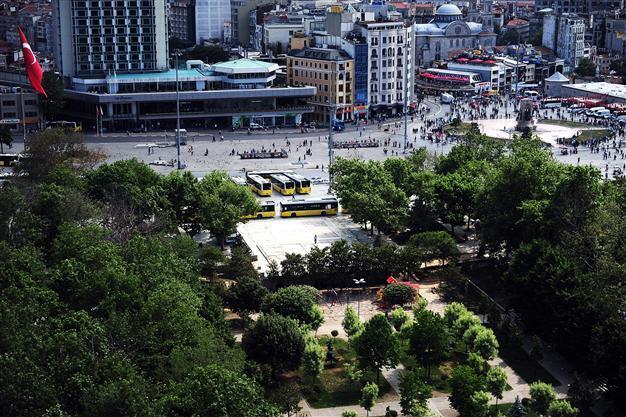Che Guevara’s prophesy realized with US' Cuba decision: Columnist
SOLİ ÖZEL - sozel@htgazete.com.tr

AFP Photo
If you are among those who are depressed with whatever is going around you and if you wonder how you will overcome all of it, do not feel too down. Things that you never expect come true in this life. Recently, an official at the European Commission told me an anecdote. When the relations between the United States and Cuba started to thaw, the EU sent a delegation to Cuba. Many of the members already had good relations with the Havana regime anyway.
The delegation met with Raul Castro and the 30-minute meeting took two hours. Toward the end of the meeting, Raul told the delegation of a conversation in the beginning of the 1960s between him, his brother Fidel and Ernesto Che Guevara. Raul had asked Che something like, “When will these Americans understand that we will do them no harm and restore their relationship with us?” Che replied, “When a black man becomes American president or an Argentine goes to the Vatican as the Pope,” apparently meaning “never.”
As you know, last week the U.S. removed Cuba from the list of terrorist countries. The normalization process launched in the last months of last year is continuing. And, yes, of course American President Barack Obama is black and the Pope is from Argentina.
For this reason, do not be fixed with the decisions made by the government to make life difficult once more for those living in Istanbul with their Gezi obsession/fear/paranoia/the need to make a show. As expected, roads and traffic to Taksim were closed on the anniversary of the Gezi protests. Moreover, the saddest and funniest side of it is that none of the huge masses have any issue such as “Let us absolutely go to Gezi this year.”
Gezi has already been engraved onto our social conscious with those who were murdered, with the mercilessness and indifference of the government, with its lack of any conscientious reaction to the deaths, with the hubris it had adopted and also because it was one of the most important social uprisings seen in this country. These will not be forgotten. However, unless circumstances call for it, not quite everybody is taking to the squares. There is no point in participating in a demonstration where the number of police would be more than the number of demonstrators or curious by-standers; especially before a quite critical election and in an environment open to all kinds of provocations. Thus, the only meaning of these bans, I guess, is that the government is even afraid of the shadow of a protest that was crushed with extreme force.
That energy, actually, is present there. It is enough to spread fear over the oppressive regimes because that energy cannot be extinguished. Injustice and oppression can increase. Individuals and social segments can be heavily victimized and suppressed. That energy would wait for its day. The protests that erupted in Iran after the 2009 elections did not escalate because the Islamic Republic has a tolerant regime. It could even be said that the will to reach a result in the talks concerning its nuclear program is the bribe of that regime to its own society; the very same regime that exerted that pressure on that day.
Next week, on the evening of Sunday, June 7, the results of the general elections will be out. At the end of the - most probably - most unfair election campaign in the history of the republic, the listing of the parties will be known to everybody. Only two questions interrelated to each other have significance. They are whether or not the Peoples’ Democratic Party (HDP) will cross the election threshold of 10 percent and what kind of a majority the ruling Justice and Development Party (AKP) will gain. However, the essence of this election is about what kind of a country Turkey will be; it is about its identity and its existence.
At first, the rooted mentality that shows itself in the Gezi bans or before that in the Mayday bans, or the bans imposed by the Higher Education Board (YÖK) on universities on academic research about Syrian refugees, will not change.
The situation of being the country where freedoms are seen not as a necessity but as an ornament or a make-up component will continue. This banning mania will have an eroding and consuming effect on society and actually the government like narcotics. However, this situation will not continue forever.
Today, the Gezi participants and supporters can enjoy the thought of having been the forerunners of the moment to come after that.
